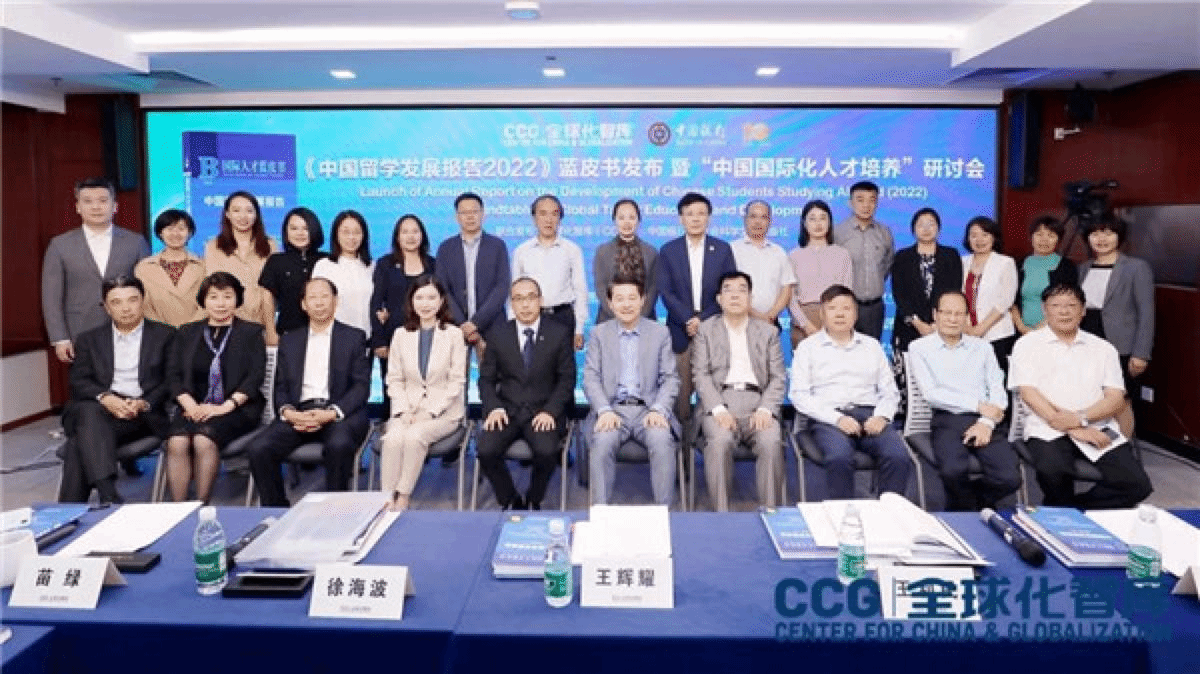On September 28, the Beijing-based Center for China & Globalization (CCG) launched the Annual Report on the Development of Chinese Students Studying Abroad (2022) and concurrently held the Roundtable on Global Talent Education and Development. Yenching Academy Associate Dean Fan Shiming spoke at the event.

The following is Professor Fan’s speech in full text:
I’m honored to be invited by CCG to speak at the event. Yenching Academy of Peking University is a case study of the Annual Report on the Development of Chinese Students Studying Abroad (2022). Let me start by introducing our Yenching Academy. Yenching Academy of Peking University is a young graduate school. It was established in May 2014 and funded by private donations. The Academy offers a highly customizable master’s program in China studies and incorporates interdisciplinary courses and field projects in the fields of humanities and social sciences. Eight out of ten Yenching Scholars are international students – 75% to 80% are from China, the US, and Europe. That said, I believe I have some ideas on international talent mobility.
First, the two-way flow of international students will profoundly change China and China’s relations with the outside world in the long run. It will make a significant difference if we can do a good job on the research and prospective projects in the field. The Annual Report is an excellent effort of the kind. For instance, there were rumors about the acceptance criteria for international students in China and their exposure to perfect conditions. The speculations resulted in nothing but misinformation or misinterpretation. Of course, the situation worsened due to the sampling bias of negative news media reports that left adverse impacts. This Annual Report results from substantive, methodological research and facilitates an understanding of international students and global talent education.
Furthermore, I agree that studying abroad is important for students, in particular, and the nation, in general. A student can forge global perspectives when studying abroad and acquire a stronger sense of sympathy and empathy. It helps guard against egoism. Unlike other forms of education, studying abroad offers a cross-cultural experience that extends for years and impacts different cultures. More so, the academic and social experience avails students the opportunities to enter new relationships with their teachers and fellow students and forge new friendships and even marriages. It is not a sip of exotic flavors in a tour but a long-lasting life experience. In the long term, overseas Chinese students and returnees will form a network that makes a difference to China and the world.
Honestly, I am not worried about what the pandemic will do to international education because the pandemic will end someday. Instead, I am concerned about the impacts political disturbance leave on cross-border education. International politics concerning China has grown complicated over the last couple of years. As a result, channels for intercultural exchange have been apparently blocked. The two-way flow of international students remains a vital path of cultural exchange between China and other countries and must be protected from being politicized. Society, government, non-governmental institutions, and think tanks must stay vigilant against the trend of politicization in the field despite the general environment hinging on China’s foreign relations and international politics. The negative impacts of politics should be reduced to a minimum. After all, education must not be tied up with politics because education does not serve politics alone. Education means more for individual cultivation, social progress, and economic growth. Consensus and concerted efforts are required to safeguard education against being affected by political issues.
